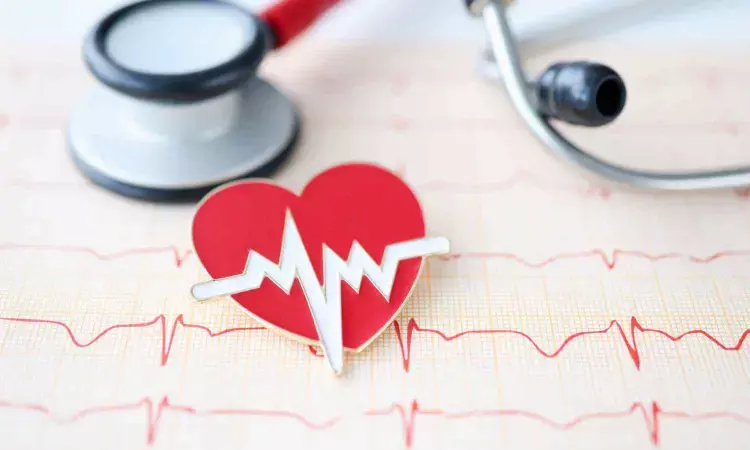- Home
- Medical news & Guidelines
- Anesthesiology
- Cardiology and CTVS
- Critical Care
- Dentistry
- Dermatology
- Diabetes and Endocrinology
- ENT
- Gastroenterology
- Medicine
- Nephrology
- Neurology
- Obstretics-Gynaecology
- Oncology
- Ophthalmology
- Orthopaedics
- Pediatrics-Neonatology
- Psychiatry
- Pulmonology
- Radiology
- Surgery
- Urology
- Laboratory Medicine
- Diet
- Nursing
- Paramedical
- Physiotherapy
- Health news
- Fact Check
- Bone Health Fact Check
- Brain Health Fact Check
- Cancer Related Fact Check
- Child Care Fact Check
- Dental and oral health fact check
- Diabetes and metabolic health fact check
- Diet and Nutrition Fact Check
- Eye and ENT Care Fact Check
- Fitness fact check
- Gut health fact check
- Heart health fact check
- Kidney health fact check
- Medical education fact check
- Men's health fact check
- Respiratory fact check
- Skin and hair care fact check
- Vaccine and Immunization fact check
- Women's health fact check
- AYUSH
- State News
- Andaman and Nicobar Islands
- Andhra Pradesh
- Arunachal Pradesh
- Assam
- Bihar
- Chandigarh
- Chattisgarh
- Dadra and Nagar Haveli
- Daman and Diu
- Delhi
- Goa
- Gujarat
- Haryana
- Himachal Pradesh
- Jammu & Kashmir
- Jharkhand
- Karnataka
- Kerala
- Ladakh
- Lakshadweep
- Madhya Pradesh
- Maharashtra
- Manipur
- Meghalaya
- Mizoram
- Nagaland
- Odisha
- Puducherry
- Punjab
- Rajasthan
- Sikkim
- Tamil Nadu
- Telangana
- Tripura
- Uttar Pradesh
- Uttrakhand
- West Bengal
- Medical Education
- Industry
Leafy greens could be good for the heart, suggests study

A cup and a half of leafy green vegetables could go a long way to addressing atherosclerotic vascular diseases (ASVD's), new research from Edith Cowan University (ECU), the University of Western Australia and the Danish Cancer Institute has found.
ASVDs are a subgroup of cardiovascular disease, which are current leading causes of death world-wide, primarily due to heart attacks and strokes. ECU PhD student Ms Montana Dupuy noted that in Australia, cardiovascular diseases claim the life of one person every 12 minutes.
Research led by Ms Dupuy has found that the higher dietary intake of Vitamin K1 could reduce the risk of ASVD.
“Leafy green and cruciferous vegetables, like spinach, kale and broccoli, contain Vitamin K1 which may assist in preventing vascular calcification processes that characterise cardiovascular disease. The great news is that these vegetables can be easily incorporated into your daily meals” she said.
In addition to its’ potential role in vascular calcification inhibition, Vitamin K may also be beneficial for musculoskeletal health, through its impact on bone strength.
ECU Senior Research Fellow Dr Marc Sim noted that a cup and a half of such vegetables is an easy way to increase our daily vitamin K intake and may lower our risk for cardiovascular disease”.
“This research found women who consumed approximately 30% higher intakes of Vitamin K1 than currently recommended in the Australian Dietary Guidelines had lower long-term risk of ASVD,” he said.
“Of importance, when we examined the blood vessels in the neck, those with a higher Vitamin K1 intake also had less thickening of these blood vessels, a marker of atherosclerosis.”
The work led by Ms Dupuy and Dr Sim on the impact of Vitamin K to vascular health, as well as musculoskeletal health, will now help to inform future research at ECU’s Future Foods and Digital Gastronomy Lab and to deliver specialised meals as part of clinical trials to improve population health.
“This research has provided key evidence to support our future studies. We are now creating new foods which pack more leafy greens that are rich in Vitamin K1. These novel foods can be used in communities with special nutritional and dietary requirements, such as aged care residents,” said ECU Post Doctoral Research Fellow Dr Liezhou Zhong.
“We are consolidating all our epidemiological data and converting that into a tangible product that would benefit the community,” he added.
Reference:
Dupuy, M., Zhong, L., Radavelli-Bagatini, S. et al. Higher vitamin K1 intakes are associated with lower subclinical atherosclerosis and lower risk for atherosclerotic vascular disease-related outcomes in older women. Eur J Nutr 64, 171 (2025). https://doi.org/10.1007/s00394-025-03686-x.
Dr Prem Aggarwal, (MD Medicine, DNB Medicine, DNB Cardiology) is a Cardiologist by profession and also the Co-founder and Chairman of Medical Dialogues. He focuses on news and perspectives about cardiology, and medicine related developments at Medical Dialogues. He can be reached out at drprem@medicaldialogues.in


